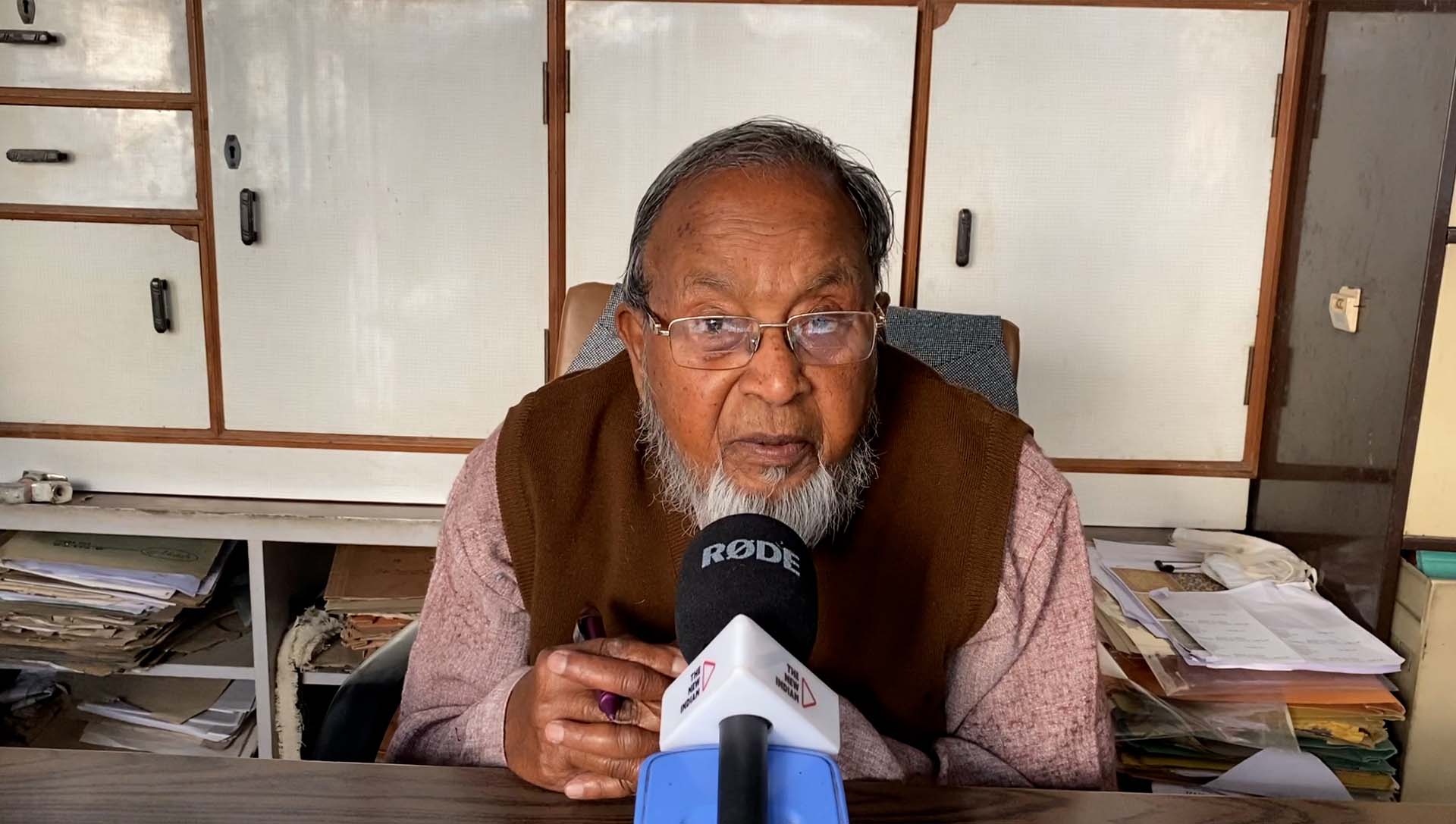BHADOHI (UTTAR PRADESH): India’s Uttar Pradesh may be one of the largest states in the country in terms land area, but few know that it is also a hub of complex handcrafts industry. Sixteen kilometres from Varanasi is situated a small town called Bhadohi. As you drive closer, a prominent board reads: “Kaalin Nagri me aapka swagat hai (Welcome to the carpet city of Bhadohi)”. Truth be told, the board is a very understated introduction to a highly complex and powerful industry, that is the carpet industry.
The Indian carpet industry boasts of a turnover of over Rs 12,500 crore annually, of which 60 per cent is shared by Bhadohi’s carpet industry with exports to the middle east, European and other countries across the globe. Of late, the industry lies in state of neglect, largely due to government apathy.
According to the locals, over 22 lakh people from rural areas across the country are involved in hand weaving for the carpet industry of Bhadohi. These areas include its adjoining districts of Mirzapur, Sonebhadra, and Chandauli. However, the industry has been severely hit due to closures and lockdowns resulting in steep drop in demand post Covid pandemic. The government negligence has only made the matters worse for them.
90-year-old Jalil Ahmad Ansari, one of the oldest manufacturers of Carpet and exporter by the name Taj Carpets told The New Indian, “Carpet industry of Bhadohi is world famous. This industry has given a lot of recognition to India, and all of this is without any investment from the government.”
“But due to the negligence of government, the industry is losing its shine,” said Ansari, who was earlier chairman of the Carpet Manufacturers Association. The business that was once booming is now restricted to only 10 per cent of its original capacity, he added.
As he showed around, he shared that having faced heavy losses many businesses shut shop and very few people remain in business today.
According to him, the situation for the industry changed post 2014. The industry, he claimed, was once a thriving one under the Congress government. But, after the BJP came to power, all benefits to carpet industry were withdrawn.
Shahid Ansari, who owns Shamsi Carpet and also a big exporter in Bhadohi, said, “Previous governments gave us 9.2 per cent drawback for import for exporting carpets. Now drawback import reduced to 3 per cent. Meanwhile, the government also brought the subsidy of 7.5 per cent to nil. Thus the reduction of over 16 per cent of subsidy has impacted us a lot.”
Ravi Jaiswal, who owns Ashoka Carpet exports, rued that the BJP has not done anything for the carpet industry. “Government should focus on providing facilities to carpet industries so that it can stand on its feet once again,” he said.
Javed Akhtar, who owns a hand weaving unit of Carpet that deals in Iranian and Turkish design said, “Government did not focus on weavers, due to which we are facing shortage of manpower.” The government schemes, he said, never reach the weavers. “The weavers can hardly feed their family as they earn very little,” he added.
Lalchand Maurya, of Carpet Palace — one of the big names in the business, pointed put at the state government apathy. “Uttar Pradesh government has not done nothing for the carpet industry,” he lamented.
“The Samajwadi Party government led by Akhilesh Yadav between 2012 to 2017, gave Rs 200 crore for Carpet expo mart but the project hit a roadblock due to Covid pandemic,” he said.
The RoDTEP (Remission of duties and taxes on exported products) scheme, introduced by the BJP government to promote exports, has made big exporters dejected, as that puts a cap on the benefits.
“The current BJP government at centre changed the schemes for carpet industry. If government give us facilities, we will compete with foreign manufacturers,” he shared.
Bhadohi is the biggest exporter of carpets and is renowned for its hand-knotted carpets. Weaving, according to local myths, originated in Mirzapur-Bhadohi during the rule of Mughal emperor Akbar. In 2010, Bhadohi carpets earned the GI (Geographical Indication) tag.
Carpets are made using an intricate knot-by-knot technique, with fingers. As the number of knots increases, the carpet becomes more intricate, and more expensive. The carpet industry in Bhadohi comprises dyeing houses, designers and weavers.
Locals said that there are many weaving techniques used in the carpet industry like that of knitting, handweaving, Tibetan hand knot, dari (flat weaving), Turkish knot and Persian knot.
Meanwhile, majority of workers in this industry earn about Rs 250 to Rs 350 for a full day’s work and live in dire conditions and they also blamed the government for inflation.
Basantu, who works in a local carpet industry and weaves the carpet said, “Whosoever forms government must work to ensure we weavers get work and earn our livelihoods.”
Basantu is engaged in finishing the design of the Carpet. His fingers work deftly with scissors as he works on cutting the design in the hand knitted carpet.
Another local weaver, Jameel, said that they don’t get proper returns even after working for 12-14 hours a day.
When asked which party would they back in the elections, he said, “We don’t have any hope from any political party. All we want for is the government to ensure that we get proper wages for our work.”
Mohammad Magnu, another local weavers said that the weavers didn’t get the benefit of ration scheme rolled out by the government during the Covid lock down.
“We were thrashed by UP Police during Covid pandemic,” he rued. “It felt bad that we were beaten for doing our work,” he said.
Bhadohi will vote in seventh phase of Uttar Pradesh assembly pills, where the Samajwadi Party and the ruling BJP are said to be in a direct fight.
However, the owners, weavers and exporters are disillusioned by the neglect of the BJP government, has emerged as a major polling factor this time in the hub of carpet industry.










